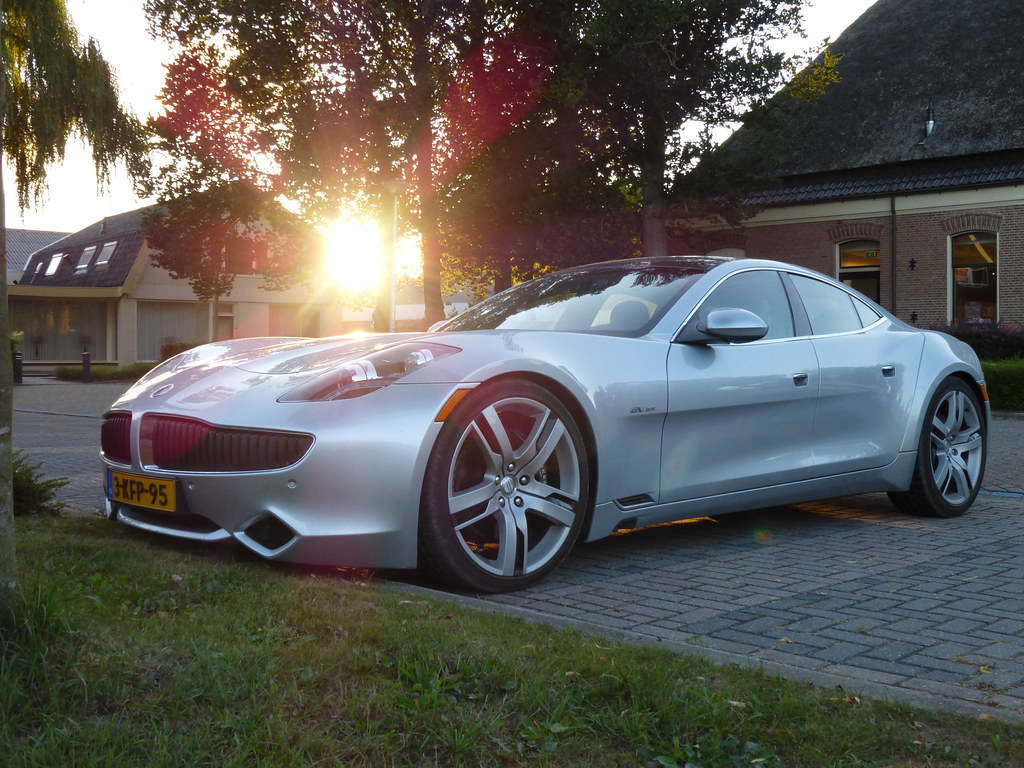In the rapidly evolving automotive industry, electric vehicles (EVs) have emerged as the leading edge of technological innovation and environmentally sustainable driving. Amid the flurry of start-ups and established manufacturers making the transition to electric vehicles, Fisker Inc., with its flagship Sea SUV, promised a blend of opulence, execution, and environmentally conscious design. However, as worries about Fisker’s financial stability grow, people are left to wonder what would happen to their cars if the company fails. This study aims to shed light on the wider implications for customers and the electric vehicle industry as a whole should retail EV companies such as Fisker venture into uncharted territory.
The Appeal and Difficulties of the Fisker Sea
The appeal of the Fisker Sea is evident. From its solid position to the noteworthy 360 miles EPA-evaluated range and reused material use, the Sea appeared to be ready to cut a specialty in the upscale electric hybrid fragment. However, underneath the surface, the waters were not even close to quiet. With Fisker’s portion values plunging and the organization stopping creation in the midst of liquidation reports, what was in store seemed dinky. The pain signals were not restricted to Fisker alone; the predicament of new businesses like Rivian and Clear, in spite of not scrutinizing their reality, featured the tempestuous excursion of arising EV organizations.
Violent Times for Fisker
Fisker’s excursion through 2023 was strikingly turbulent. Creation targets were sliced definitely because of different difficulties, including provider delays, highlighting a dubious monetary place that required labor force decreases and a scramble for extra capital. The transition to lay out showrooms and arrange likely speculations and organizations mirrored a frantic bid for endurance. These moves, while key, highlighted the innate dangers of the startup’s resource light methodology and dependence on agreement fabricating.
Worries of Fisker Proprietors
In the midst of these violent times, Fisker Sea proprietors like Richard Hicks and Bruce Bartlett share a typical fear in regards to the drawn out feasibility and backing for their vehicles. Programming bugs, irritating client care issues, and the potential for $70,000 paperweights pose a potential threat. The more extensive concern reverberations through the EV people group: What happens while a spearheading yet problematic EV organization folds?

The Exceptional Difficulties of EVs from Outdated Organizations
The situation confronting Fisker and its kind isn’t remarkable to the car business however presents extraordinary difficulties in the EV space. Customarily, vehicles from dead organizations could find new life through motor trades or become authority’s things. The intricacy and restrictive nature of EV innovation, nonetheless, entangle such undertakings. The possibility of bricking, where EVs become inoperable because of programming or battery issues, presents an obvious reality for proprietors. Not at all like gas powered motor vehicles, trading parts in an EV requires complex information and similarity — a difficult task for the early EV tuner and recycled market.
Manageability of the EV Unrest
The possible end of organizations like Fisker brings up issues about the maintainability of the EV unrest. While the business is without a doubt moving towards zap, the way is full of monetary and innovative obstacles. The way to exploring these difficulties lies in vigorous emotionally supportive networks for EV proprietors, development in secondary selling arrangements, and maybe, a change in shopper assumptions towards vehicle life span and backing.
The Significance of Emotionally supportive networks and Development
For Fisker Sea proprietors and EV lovers the same, the circumstance highlights the significance of an expected level of effort and the intrinsic dangers of early reception in a quickly developing business sector. The vulnerability encompassing Fisker’s future and the possible effect on proprietors is a useful example for the business. It features the requirement for straightforward correspondence, solid client care, and emergency courses of action to help vehicles long haul.
As the mists accumulate, the expectation stays that Fisker or substances like it can face the hardship through essential associations, advancements, and local area support. The development of the EV market depends on mechanical ability as well as on building trust and versatility against the unavoidable recurring patterns of the business. In this time of vulnerability, the spearheading soul of organizations like Fisker and the enthusiasm of their proprietors may yet diagram a course towards a reasonable, energized future.

While the EV transformation keeps on picking up speed, the possible floundering of organizations like Fisker fills in as an unmistakable sign of the difficulties ahead. The strength of the business, the development of the secondary selling, and the assurance of EV adopters will at last decide the destiny of electric portability. As we explore these strange waters, the aggregate endeavors of producers, proprietors, and fans will be significant in directing towards a future where electric vehicles guarantee as well as convey a practical, energizing, and upheld driving experience.
The potential demise of entities such as Fisker raises questions over the viability of the EV insurgency. Undoubtedly, the company is headed toward success, but there are several financial and technological roadblocks in the way. The solution to these challenges is to create strong, emotionally supportive networks for electric vehicle owners, improve reseller exchange agreements, and perhaps alter consumer perceptions of vehicle longevity and support. The potential demise of entities like as Fisker raises questions over the sustainability of the EV insurgency. Undoubtedly, the business is heading in the right direction, but there are several financial and technological roadblocks in the way. Establishing robust and emotionally supportive networks for electric vehicle owners, advancing reseller exchange agreements, and maybe, a change in shopper assumptions towards vehicle life span and backing.
Related posts:
Fisker future looks unsure
‘It Really Stinks’: Fisker Ocean Owners Feel Burned If Company Goes Under
Fisker shares halted as EV company navigates uncertain future





